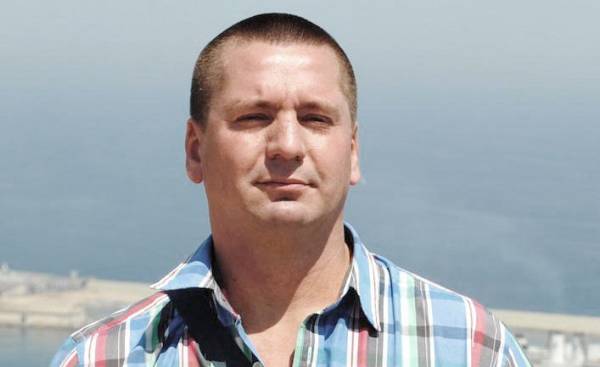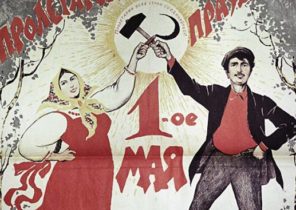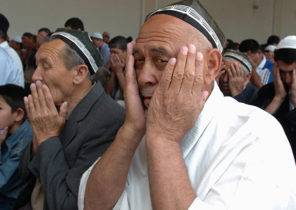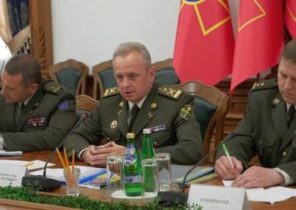
Any war after the first shock depends on the effective functioning of military logistics. Material security is the Foundation of fighting. It’s not as interesting as political games or military exercises, and military logistics rarely reach the media, but NATO today are actively working to improve logistics in Eastern Europe. Likely enemy — Russia.
A few days ago the commander of US forces in Europe Lieutenant General Ben Hodges said that although in Europe and is making progress with military logistics, but much remains to be done to speed up the process of transportation of equipment and manpower in Europe and to be ready for the transfer in the event of a real emergency. The General said that there is a sufficient number of railway lines connecting Germany and Poland, and that in the event of hostilities is not to be missed cars. The problem is European, and the bridges that can’t handle NATO tanks. General advocates the establishment of a “military Schengen”, to quickly deliver troops to Lithuania and Romania through transit countries. While this is accompanied by a lot of coordination for political and legal sense. Hodges also believes that Germany needs to spend more on modernization of its military ports, airfields and transport hubs.
In Poland on the basis of the Polish air force at Powidz village today, a logistic base for NATO. It will be invested 200 million dollars and it will be the largest logistics hub of NATO forces for action in the Baltic States and Northern Europe. The first facilities expected to officially open on 1 August this year.
The commander of the British army, General Nick Carter, commenting on the stay of a contingent of great Britain in Estonia, said: “We would like to test the process of interaction with our support bases in Germany and the extension of reinforcements to the Baltic States, for us it would be a great workout. During the cold war, we succeeded, we knew exactly how we move across borders, and all other aspects of delivery systems, and we would like once again to master this skill. We didn’t have to do that in Iraq or Afghanistan, but this is a skill set that is expected from expeditionary army”.
In March this year in Prague hosted a conference on military logistics, where military structures and commercial companies discussed the optimization of joint actions in the event of war.
This summer, a new book of Professor Thomas Darrell young’s “anatomy of the post-Communist European military institutions: why reforms failed.” In it the author assesses the state of the armed forces of the former Warsaw Pact countries and Soviet republics, and warned NATO against the background of the growing military power of Russia the North Atlantic Alliance urgently needs to do something with the military reforms in these countries.
Professor Yang is not an ordinary analyst. He is known and respected figure in the military-political establishment in the West. Yang is working today in the Higher naval school of the United States, is a consultant to the military-analytical Corporation RAND, and before that for 12 years he taught at the army war College the United States. Thomas young is the author of several books and hundreds of articles. His work will be read by the senators and councillors of English Prime Ministers, the NATO leadership and the US armed forces. The main area of interest of Professor’s military-political processes in Central and Eastern Europe and the reform of the armed forces.
Thus, Thomas young not just a theorist. He was involved in the planning and conduct of military reform on the ground: in Estonia (2000-2002), Ukraine (2003-2013), Moldova (2004-2008), Bulgaria (2008-2011), Serbia (2010 to date) and Montenegro (2011 to date). In 2008, Thomas young led a group of American military experts from the Higher school of naval forces of the United States who visited Georgia two months before the start of the war in South Ossetia.
A new book by carefully studying the young today in the West, and many consider it the most sober and uncompromising, going against the conventional, and a nice assessment of the actual state of the armies in Eastern Europe.
Thomas young in his work argues that 25 years, NATO was inactive, not taking Russia seriously and not having a real reform of the armed forces of the new members of the Alliance, resting on the laurels of the winner in the Cold war. During this time, Russia strengthened, undertook military reforms and is now rapidly upgrading its army, while the countries of Eastern Europe continue to rely on the military power of the Western partners, the Western partners only after Crimea started to think about what is happening.
As writes Professor young, of course, the U.S. has invested in training and modernization of the armies of new partners in Europe, billions of dollars, but in fact military institutions of these countries and their logic, structure, and leadership remained Soviet in origin. Changing the facade — almost unchanged content. Eastern European countries showed reform initiatives and their Western partners and did not insist. All all arranged. One of the reasons is the satisfaction that the countries of Eastern Europe took their active part in the military campaign of the Coalition forces in Afghanistan and Iraq. Small units have been selected, trained, participated and came back. The West praised the new members, and new members of the war remained proud of his contribution. Everyone is happy, but this is not reform.
Yang complains that the military equipment of the Eastern European countries have literally rust in warehouses. The personnel is not ready for real combat, the pilots of scanty the clock strikes. And, according to young, the worst thing for NATO is that actually there is no real rehabilitation or replacement of military equipment.
The American planner warns the US and NATO that in case of aggression from the Russian side the first blow will have on Eastern and Central Europe, which will be at the forefront of the defense of the Alliance. It would be strange, in his opinion, until recently not give it the highest importance.
In 2014, NATO again demanded to allocate 2% of its national budget on defense, but the question of the real military effectiveness of these costs, few people asked. The figure of 2% of GDP has been discussed since the 70-ies of the last century. Thomas Yang believes that 2% will give nothing in terms of defense capability of the Alliance members. More money does not automatically mean more military strategic possibilities.
Most interesting is that the expert is not limited to the technical side of the question. Yang says that NATO and the Western countries should stop to take a technical role, caring only about the tactics and gear that the West would send little engineering and sent their instructors to train Eastern European soldiers and officers in different courses from time to time having the same, giving at the mercy of strategic planning and management of the armed forces, local military-political leadership of the countries of Eastern Europe.
It will not prepare Eastern Europe for a major confrontation with Russia. Thomas Yang believes that the West is the time to take strategic planning in Eastern Europe in their hands.
He goes further and writes that reforming the military institutions is not technical, but primarily a political task. Young advises the West to toughen its attitude to the Eastern partners and to achieve policy changes and adoption of “Western democratic principles,” defence policy at the national level.
Eastern Europe should, according to military Professor to adopt Western methods of military planning, to train their military leaders in line with Western practices and, almost most importantly, to radically change the system of logistics and material support, which is still based on the Soviet experience. Eastern Europe today is not ready from a logistics standpoint even just to accept large-scale aid from the West in case of war.
Yang writes frequently on military logistics in his writings. Eastern Europe is not ready for the logistics support of military action against a potential enemy, and no secret that Russia and the events in the Crimea and the Donbass, according to young, is a glaring example. And reforms should be carried out as quickly as possible, because, according to Thomas young, “Putin will not give the West another 25 years” to complete them.






